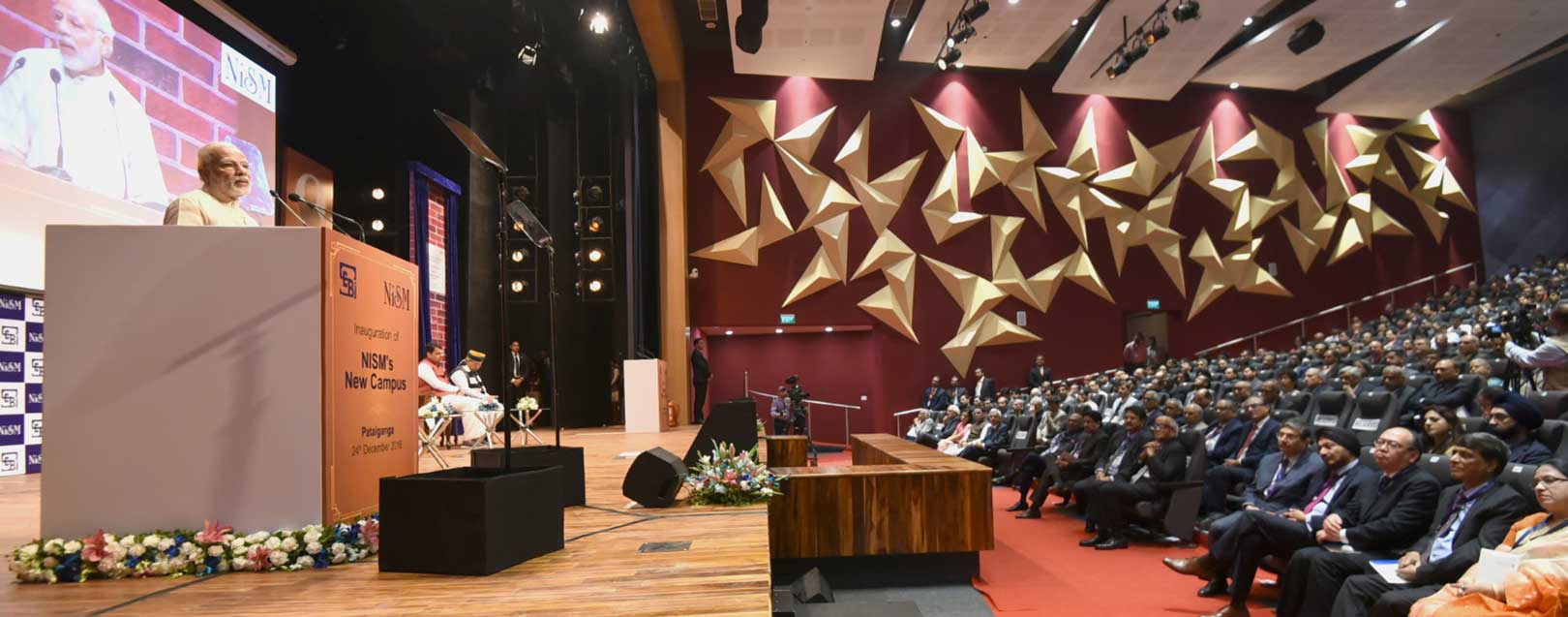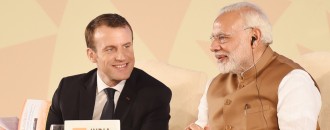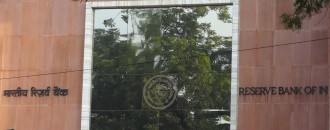
‘We will continue to follow sound and prudent economic policies for a brighter future,' Modi
The Dollar Business Bureau
Inaugurating the new campus of the National Institute of Securities Markets at Patalganga, on Saturday the PM equivocally asserted that his government ‘will continue to follow sound and prudent economic policies for a brighter future of the country’.
Addressing a conclave of investment bankers, financial experts and market regulators after inaugurating the new campus, the Prime Minister said, ‘this is a time of slowdown in the global economy. Developed countries and emerging markets are both facing slow growth. Against this background, India is being seen as a bright spot. Growth is projected to remain among the highest in the world.
India’s place as the fastest growing large economy has not come about by accident. To see how far we have travelled, we should look back to 2012-13. The fiscal deficit had reached alarming levels. The currency was falling sharply. Inflation was high. The current account deficit was rising. Confidence was low and foreign investors were turning away from India. India was considered the weakest of the BRICS nations.’
Highlighting his government’s achievement in cutting the fiscal deficit target every year he said that the current ‘account deficit is low. Even after the redemption of loans taken under the special currency swap in 2013, foreign exchange reserves are high. Inflation is low, running at less than 4 per cent compared to double digit inflation under the previous government. Public investment has increased largely, even while the overall fiscal deficit has been cut. A new monetary policy framework has been introduced by law with an inflation target. The Constitutional Amendment on Goods and Services Tax had remained pending for years. It has been passed and the long-awaited GST will soon be a reality. We have made progress on improving the ease of doing business. As a result of all these policies, Foreign Direct Investment has reached record levels. By claiming that demonetisation has stopped a fast-moving car, our critics too have acknowledged the speed of our progress.’
Sending a clear signal about the future economic policies of the government he harped that his government will not shy from taking difficult decisions in the interest of the country.
The PM and his government have been facing scathing criticism from the international and national media, since Nov 8. Referring to the demonetisation decision taken by the government he said, “This Government will continue to follow sound and prudent economic policies, to ensure that India has a bright future in the long run. We will not take decisions for short term political point scoring. We will not shy away from taking difficult decisions, if those decisions are in the interest of the country. Demonetisation is an example. It has short term pain but will bring long term gain.”
Referring to the millions that live in villages and the farmers that face the maximum hardship with least amount of benefits reaching them, he stressed that the true measure of a country’s success lies in its villages, not the impact in Dalal Street or Lutyens’ Delhi. Therefore, “our stock markets need to raise capital in innovative ways for projects in agriculture. Our commodity markets must become useful to our farmers, not just avenues for speculation. People say that derivatives can be used by farmers for reducing their risks. But in practice, hardly any farmer in India uses derivatives. That is the fact. Unless and until we make the commodity markets directly useful to farmers, they are just a costly ornament in our economy, not a useful tool. This Government has introduced e-NAM – the electronic National Agricultural Market. SEBI should work for closer linkage between spot markets like e-NAM and derivatives markets to benefit farmers.”
Profiteers in the financial markets must contribute their share to nation-building through taxes he said. “For various reasons, the contribution of tax from those who make money on the markets has been low. To some extent, it may be due to illegal activities and fraud. To stop this, SEBI has to be extremely vigilant. To some extent, the low contribution of taxes may also be due to the structure of our tax laws. Low or zero tax rate is given to certain types of financial income. I call upon you to think about the contribution of market participants to the exchequer. We should consider methods for increasing it in a fair, efficient and transparent way. Earlier, there was a feeling that some investors were getting an unfair deal by using certain tax treaties. As you know, those treaties have been amended by this government. Now it is time to re-think and come up with a good design which is simple and transparent, but also fair and progressive.”






 to success.
to success.